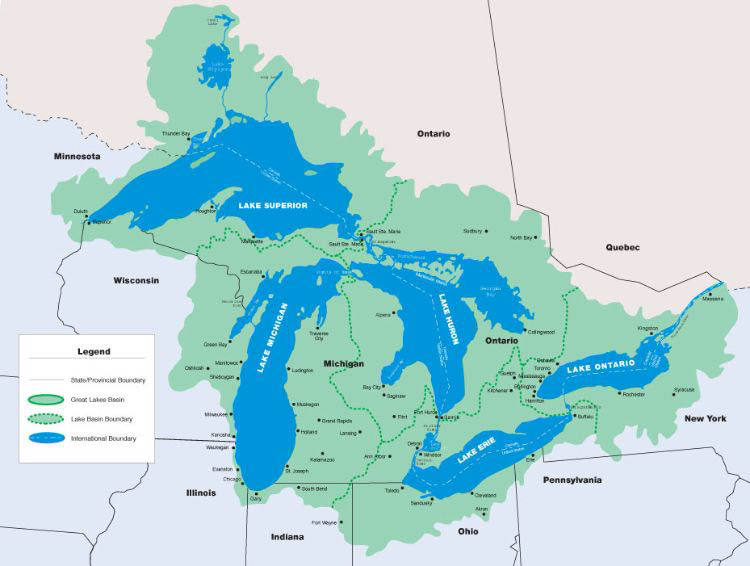Established by treaty to protect our fishery.
The Great Lakes fisheries is a binational asset worth more than $7 billion yearly to the people of Canada and the United States. Millions of fishermen go to the fishery, which supports valuable commercial and charter fishing, provides a lifeline for indigenous peoples, and is the foundation of a healthy environment.
The Great Lakes Resource Commission, which was established by the Great Lakes Fisheries Convention of 1954, now facilitates successful cross-border collaboration, ensuring that the two countries work together to improve and sustain this fishery.
Despite the fact that the lakes are shared by two countries, eight states, one province, and several tribes, the fisheries resources do not respect political boundaries. The best way to manage and sustain the fishery is through constant binational cooperation, which Canada and the US understood decades ago.
Surprisingly, a vehicle for cross-border collaboration was not usually present. From the late 1800s through 1954, numerous attempts to form an international fishery commission for the Great Lakes failed due to a lack of understanding about how to operate together and the states’ and provinces’ unwillingness to commit fishery management authority to a binational organization.
The Great Lakes Fishery Commission is supported by the federal governments of the United States and Canada, in accordance with the Great Lakes Fisheries Convention and accompanying laws.
What does the commission’s science program mean to the Great Lakes?
- control sea lamprey effectively;
- demonstrate that fish populations are interconnected, that they are vulnerable to human-induced and natural changes, and that restoring native species—particularly predatory fish—will bring a more natural balance to the ecosystem;
- highlight that certain invasive species, over-fishing or over-harvest, and habitat destruction act to destabilize aquatic communities and the fisheries they support; and
- recommend measures to sustain and improve the valuable fishery.
To help sustain and improve Great Lakes fishery management, the commission actively supports the transfer of science to those who will put it to use.





